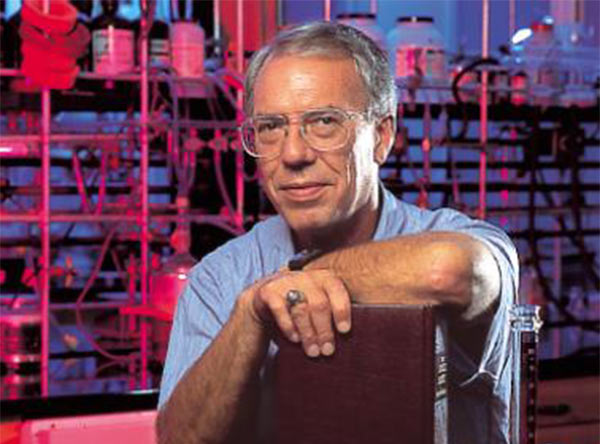Faculty
FLORIDA STATE / PEOPLE / EMERITUS FACULTY
Dr. Robert A. Holton, Matthew Suffness Professor

Professional Preparation/Appointments
Ph.D. (1971) Florida State University
Contact Information
| holton@chem.fsu.edu | ||
| Office | 715 DLC | 850.644.1757 |
| Lab | 740 DLC | 850.644.8267 |
Programs of research
research specialties
Synthesis and Catalysis
Research Interest
SYNTHETIC ORGANIC, ORGANOMETALLIC, AND BIOORGANIC CHEMISTRY;TOTAL SYNTHESIS OF NATURAL PRODUCTS
Over four decades ago the first total synthesis of a truly complex natural product was conceived and executed. This landmark event demonstrated that such an accomplishment was possible and initiated the field of endeavor which has blossomed since that time. Natural product synthesis is still recognized today as the most sophisticated and challenging area of organic chemistry. It requires an appreciation and understanding of a wide range of chemical principles, which, in combination with imagination, experimental skill, and inspiration, make possible the achievement of the synthetic goal. Organic synthesis is a highly intellectual adventure which has contributed more than any other branch of organic chemistry to the understanding of fundamental principles of bond formation, conformation, and stereoelectronic features governing reactivity.
We have chosen to pursue our goal of contributing to scientific discovery and understanding through the vehicle of natural product synthesis. Our objective is to find simple solutions to complex synthetic problems. Frequently this leads to the discovery of new strategies, reagents, and reactions, and it potentially can be of great benefit to society.
Our group is engaged in synthesis of molecules which challenge the state of the synthetic art, and these frequently also have interesting biological activity. Three specific examples are taxol, lonomycin A, and brevitoxin B. Of these, taxol has recently occupied most of our attention and effort. Isolated from the bark of the relatively rare and slow-growing pacific yew tree over twenty years ago, taxol is the most promising new antitumor agent for the treatment of ovarian and breast cancers. It has a unique mechanism of action, blocking cell division by binding and stabilizing microtubules, structures which comprise the cytoskeleton and the mitotic spindle. A few years ago, our group developed an efficient semisynthesis of taxol which will provide the commercial supply, and this has made it unnecessary to destroy the environment through the harvest of yew trees. More recently, we have completed the first total synthesis of taxol, which, while not commercially viable at this time, provides molecules that can be used to explore the details of taxol’s biology and that are potentially more effective antitumor agents than taxol. We are currently looking for simpler methods for the synthesis of taxol and taxol-like molecules, while attempting to understand more precisely their interaction with microtubules.
